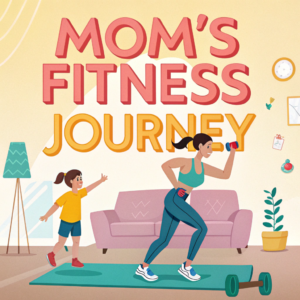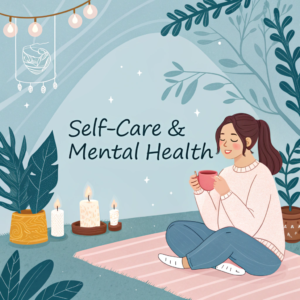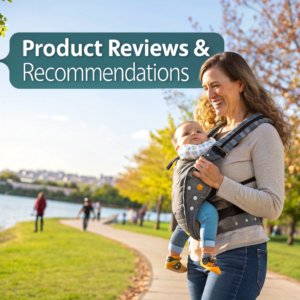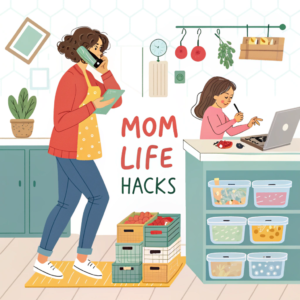Being a new parent means you have lots of questions. It’s key to keep yourself healthy while caring for your baby. You need to know the best ways to care for your newborn.
80% of new parents worry about feeding their baby, even more so if it’s their first time2. Remember, taking care of a newborn is a journey. It’s okay to go slow. By following the right tips and essentials, you can help your baby have a great start.
Key Takeaways
- Prioritize your own health and wellness as a new parent to ensure a happy and healthy start for your baby.
- Stay informed about newborn health tips and newborn care essentials to navigate the challenges of caring for a newborn.
- Don’t be afraid to ask for help when you need it, as many new parents feel overwhelmed by the responsibilities of caring for a newborn2.
- Focus on creating a sustainable sleep schedule and nutrition plan to support your overall health and wellness.
- Remember that it’s okay to take things one step at a time, and don’t hesitate to seek professional help if you’re experiencing anxiety or other concerns2.
Understanding the Challenges of Staying Healthy with a Newborn
Being a new parent can make you worry about your baby’s health. But, it’s also key to take care of yourself. This helps you care for your baby better3. shows that 70-90% of new moms feel stressed, anxious, or depressed after having a baby.
New parents often don’t get enough sleep. Babies cry a lot in the first six weeks, up to 2-3 hours a day4. It’s tough, but it’s normal. Getting advice on parenting advice newborn can help you handle these tough times.
Here are some tips for new parents to stay healthy:
- Try to rest when you can
- Eat well and stay hydrated
- Ask for help from loved ones
By following these tips, new parents can start their journey to health and happiness with their baby.
Remember, taking care of yourself is key to being a happy parent. Focus on your postpartum health and get parenting advice newborn. This way, you can make a safe and loving space for your baby to grow.
| Age of Baby | Recommended Feedings | Recommended Intake |
|---|---|---|
| 0-4 months | 8-12 feedings daily | 20-32 ounces of breast milk or formula per day |
| 4-6 months | 4-6 feedings daily | 28-32 ounces of breast milk or formula per day |
For more info on mother and baby wellness and parenting advice newborn, talk to your doctor or a trusted source5.
Creating a Sustainable Sleep Schedule
As a new parent, it’s key to make a sleep schedule that works. This helps you rest well and care for your baby better. The American Academy of Pediatrics says it’s good to have your baby’s crib or bassinet near you for at least 6 months6.
Here are some tips for a good sleep schedule:
- Make a bedtime routine
- Keep the room cool and dark for sleep
- Don’t over-bundle your baby and keep the room at the right temperature
By focusing on sleep, you and your baby can do well. Always put your baby on their back to sleep. Also, avoid using blankets or pillows in the crib6.

Follow these tips to help your baby sleep safely and well. Always talk to your pediatrician for advice on sleep schedules for your baby6.
Nutrition Essentials for New Parents
Eating foods rich in protein, calcium, and iron is key. It helps you stay healthy and supports your baby’s growth.
Here are some quick and healthy meal ideas for new parents:
- Overnight oats with fruit and nuts
- Grilled chicken with roasted vegetables
- Salads with lean protein and whole grains
Try to drink less than 3 cups of coffee or soda a day. This helps your baby sleep better and feel calmer8. Eating the right foods keeps you energized. It also helps you stay healthy and supports your baby’s growth.
For more tips on caring for your newborn and staying fit, talk to your doctor or a dietitian. They can give you advice on what to eat and how to stay active. This helps you and your baby stay healthy.
Physical Recovery After Childbirth
As a new parent, taking care of your body after childbirth is key. This time, called the postpartum period, can last up to six to eight weeks10. You might feel sore down there, which can take weeks to get better, more so if you had a big tear11. It’s important to follow parenting advice newborn tips for a smooth recovery.

Remember, some new moms might feel sad or worried, which is normal in up to 10-15% of cases11. If you feel down or worried, get help right away. Taking care of your body and following parenting advice newborn tips will help you and your baby start off well.
Mental Wellness Strategies for New Parents
Being a new parent means taking care of your mind too. It’s key for your baby’s health. Knowing the signs of postpartum depression is important. About 1 in 7 women get it after having a baby13.
Having a support group is also key. Not taking care of yourself can make parenting harder. Studies show it can make stress feel 50% worse14.
Remember, you’re not alone. Many new parents face similar issues. Asking for help is a sign of strength. By focusing on your mental health, you can start your parenting journey on a positive note.

Exercise Options While Caring for Your Newborn
Being a new parent makes it hard to find time for fitness for new moms. But it’s key for your health. Adding exercise to your day helps keep you energetic and healthy. This is important for newborn health strategies.
Research shows that exercising before and during pregnancy helps after birth. You just need to feel okay to do it15.
It’s good to focus on quick exercise benefits. Like feeling more energetic and happier15.

Always put your baby’s health first. Talk to your doctor before starting to exercise, if your birth was complicated15. By exercising and eating well, you’ll stay healthy. This helps your baby have a strong start, which is part of newborn health strategies.
Time Management Skills for Health Maintenance
Being a new parent means you need to manage your time well. This helps you stay healthy and take care of your baby. You can do this by making a daily plan, sharing tasks, and taking time for yourself. Taking care of a newborn can feel too much, but a plan helps you and your baby get the care you need17.
Newborns sleep a lot, about 16 hours in a day. They sleep in blocks of 2–4 hours. It’s important to have a regular sleep schedule for both you and your baby. Here are some tips for managing your time:
- Make a daily plan for feeding, changing diapers, and sleeping.
- Ask your partner or family to help with household chores and taking care of your baby.
- Make time for yourself, like taking a warm bath or reading, to reduce stress.
It’s also key to eat well and drink plenty of water. The World Health Organization says women should eat about 500 more calories a day after having a baby, if they’re breastfeeding18. By managing your time and focusing on your health, you and your baby can start off strong and happy.

Remember, taking care of yourself is important for your baby’s health too. By following these tips and focusing on your health, you can build a strong and healthy bond with your baby19.
| Age | Sleep Pattern | Feeding Frequency |
|---|---|---|
| 0-3 months | 16-18 hours | 8-12 times |
| 3-6 months | 14-16 hours | 6-8 times |
Maintaining Social Connections as New Parents
Being a new parent means it’s key to keep up with friends. Parenting advice newborn says having a support group is vital. It helps you feel less alone and stressed. Studies show 60% of new parents know friends are key for feeling good20.
Family and friends might want to help. Their stories can be useful, even if you don’t agree on everything.
It’s hard to keep in touch with friends and family with a new baby. But, it’s very important. Social connections give you emotional support and help you handle being a parent. You can join groups, go to classes, or use online forums. This way, you meet people who get what you’re going through and share newborn health guidelines and tips.
Here are some tips for keeping in touch as a new parent:
- Join a new parent group or club to meet other parents with similar interests and experiences
- Attend parenting classes or workshops to learn new skills and connect with others
- Participate in online forums or social media groups to stay connected with friends and family who may not be nearby

By focusing on social connections and following parenting advice newborn, you can create a strong support network. This ensures a happy and healthy start for you and your baby. Remember, keeping in touch is very important. With a bit of effort, you can stay connected with friends and family while dealing with parenting challenges21.
Healthcare Appointments and Check-ups
Being a new parent means focusing on your baby’s health. It’s key to go to all the doctor visits. These visits help track how your baby is growing and if they’re healthy22.
Important things to remember at these visits are:
- Checking how big your baby is, like weight and head size
- Keeping up with shots and tests
- Talking to the doctor about any worries or questions
By making doctor visits a priority, you help your baby have a great start. Always talk to your doctor about any concerns22.

Stress Management Techniques
Being a new parent means you need to find ways to handle stress. Postpartum health is key, and keeping stress down helps you stay mentally strong. About 15% of new moms get postpartum depression (PPD)24.
Try doing things that relax you, like taking a warm bath or deep breathing. These activities can be part of your daily routine.
Experts say sleep is vital for new moms. They should get at least 4 hours of sleep in a row24. But, it’s hard with a newborn. Ask your partner or family to watch the baby so you can sleep.
Having a schedule for daycare and dates can also help25.
Here are more ways to manage stress:
- Take breaks and ask for help when you need it
- Practice mindfulness and meditation to reduce stress and anxiety
- Get outside and take a walk with your baby to get some fresh air and exercise
Remember, your mental health is important for you and your baby. By managing stress and asking for help, you can feel less overwhelmed. For more tips onparenting advice newborncare, talk to your doctor or a trusted source24.

Partner Support and Shared Responsibilities
Being a new parent means you need to work together with your partner. This helps your baby start life off right. You’ll need to talk well and share tasks to keep your bond strong. This way, you both feel less stressed and your baby will be happy and healthy.
Here are some tips to help you and your partner work better together:
Sharing duties helps your baby and you stay well. This means following newborn care essentials like keeping your baby safe. Make sure anyone caring for your baby is healthy and up to date on shots26.

Conclusion: Embracing Your Journey to Wellness as a New Parent
Starting your journey as a parent is exciting. But remember, taking care of yourself is key. This way, you can take good care of your baby too. Your health is just as important as your baby’s28.
We’ve shown you ways to stay healthy and strong. You can set up a sleep schedule and eat well. These steps help keep you feeling good29.
FAQ
What are some common health challenges for new parents?
New parents often face sleep loss, healing after birth, stress, and adjusting to caring for a baby. These changes can be tough.
Why is it important for new parents to prioritize their own health?
Your health is as vital as your baby’s. Taking care of yourself means you can give your best to your baby.
How can new parents set realistic health goals?
First, figure out what you need and what’s hard. Then, make a plan with easy steps. This might mean setting a sleep schedule, eating well, or exercising.
What tips can help new parents create a sustainable sleep schedule?
Create a calm bedtime routine. Keep your sleep area dark and cool. Take turns sleeping with your partner.
How can new parents maintain their nutrition while caring for a newborn?
Eat quick, healthy meals and snacks. Drink lots of water. Ask for help with cooking from friends and family.
What are some strategies for supporting physical recovery after childbirth?
Take care of your wounds and listen to your body. Start gentle exercises when you’re ready. Talk to your doctor about your recovery.
How can new parents address mental wellness concerns?
Watch for signs of postpartum depression. Build a support network. Use stress-reducing activities like meditation.
What are some exercise options for new parents?
Try postpartum-friendly workouts like walking with your baby or yoga. Find ways to move every day.
How can new parents manage their time and prioritize self-care?
Make daily routines and share tasks. Find small moments for yourself, even just a few minutes.
Why is it important for new parents to maintain social connections?
Friends and family help you feel less alone. They offer support and help your well-being.
What healthcare appointments and check-ups are essential for new parents?
Go to all postpartum check-ups. Keep up with your baby’s appointments. Seek help if you or your baby has health concerns.
How can new parents manage stress and maintain a healthy mindset?
Use deep breathing, meditation, or journaling to reduce stress. Ask for help when you need it.
What are some ways new parents can foster partner support and shared responsibilities?
Talk openly with your partner. Plan how to share duties. Be flexible to support each other and care for your baby.















